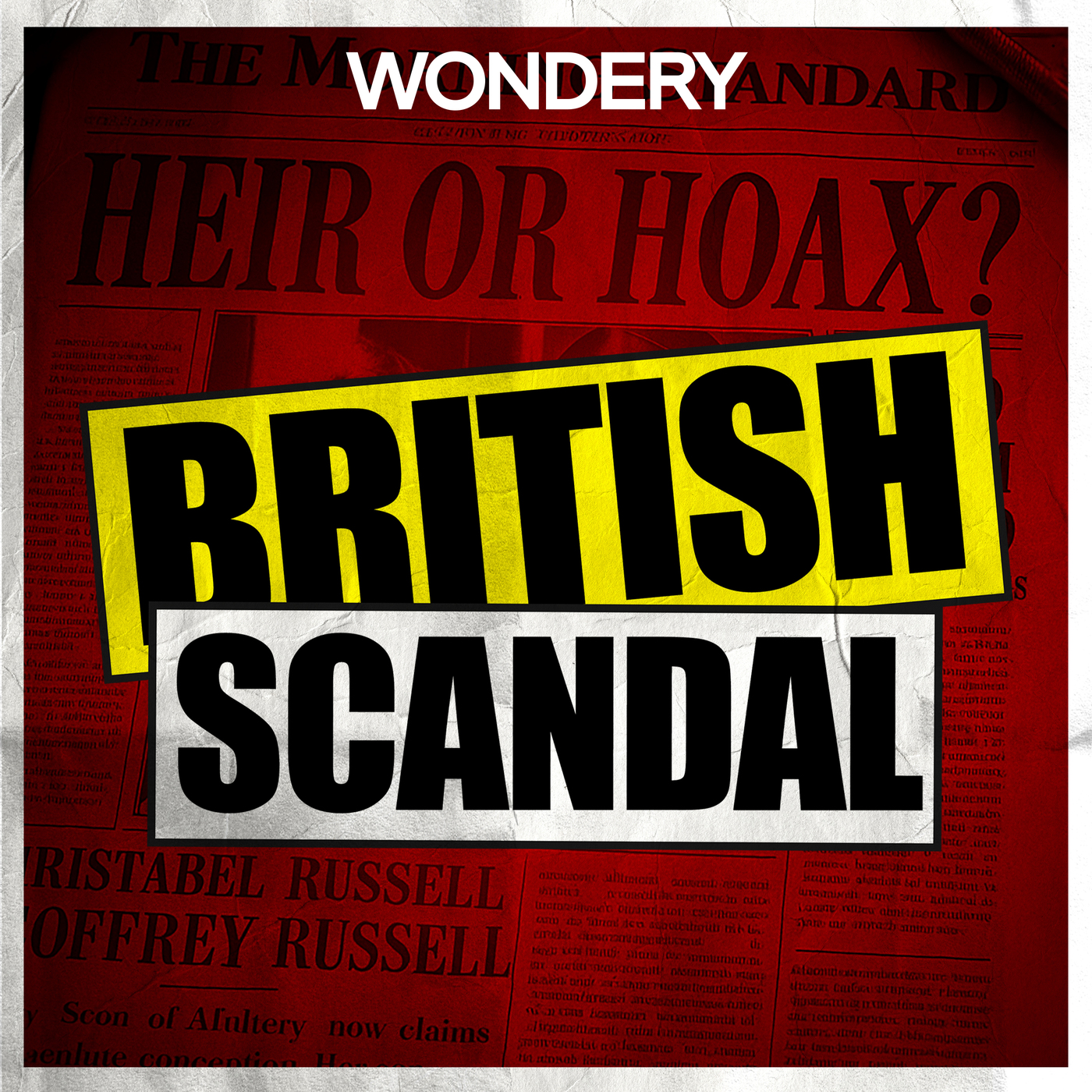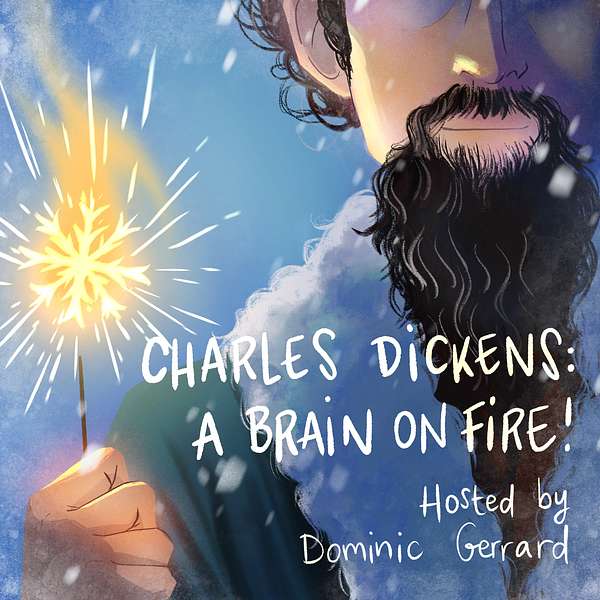
Charles Dickens: A Brain on Fire! 🔥
Guests include: Stephen Fry, Miriam Margolyes, Armando Iannucci, Alice Loxton, Robert Douglas-Fairhurst, Lucinda Hawksley, John Mullan, Pen Vogler, Andrew Davies, Rosie Holt, Bernard Cornwell .... and many more academics, writers, actors, directors and descendants of the great man himself!
Along side these interviews there are special Dickens readings from across his works ...
Thank you for listening 🔥
Charles Dickens: A Brain on Fire! 🔥
“The Battle of Life” (Excerpt): Read by Rebecca Tanwen
Happy 6th Day of Christmas! Today’s guest is the wonderful Rebecca Tanwen reading for us the opening pages of Dickens’ 4th Christmas book The Battle of Life …
The story opens with a wide shot of an ancient battle ground, where the traces of the fight have lingered through the centuries, not only in the earth but in the minds of the generations that have lived afterwards. The narrative works its way through a kind of time-lapse describing the changing seasons over many decades before settling on an orchard where amongst the apple-pickers two sisters - Grace & Marion - are found dancing along to a harp and fiddle with total abandon …
As a voice artist Rebecca won this year’s One Voice Award and previously the BBC’s Carleton Hobbs. Her theatre credits include Royal National Theatre production of Othello, As You Like It for the Oxford Shakespeare Company and Elephant 21 at the Royal Court. Her screen credits include The Wheel of Time on Amazon Prime and Lionsgate’s Nacho XXL ...
If you'd like to make a donation to support the costs of producing this series you can buy 'coffees' right here https://www.buymeacoffee.com/dominicgerrard
Thank you so much!
Host: Dominic Gerrard
Series Artwork: Léna Gibert
Original Music: Dominic Gerrard
Thank you for listening!
Hi everyone, happy 6th day of Christmas. Today's guest is the wonderful Rebecca Tanwin, who last read for this series in the interview with Armando Iannucci. As a voice artist, rebecca won this year's One Voice Award and previously the BBC's Carlton Hobbs. Her theatre credits include the Royal National Theatre Production of Othello, as you Like it, for the Oxford Shakespeare Company and Elephant 21 at the Royal Court. Her screen credits include the Wheel of Time on Amazon Prime and Lion's Gates Nacho XXL. Today she will be reading for us the opening pages of Dickens' 4th Christmas book, the Battle of Life. This story opens with a wide shot of an ancient battleground where the traces of the fight have lingered through the centuries, not only in the earth but in the minds of the generations that have lived afterwards. Dickens' narrative works its way through a kind of time lapse, describing the changing seasons over many decades, before settling on an orchard where, amongst the apple pickers, two sisters, grace and Marion, are found dancing along to a harp and fiddle in total abandon.
Rebecca Tanwen:Once upon a time, it matters little when, and in stalwart England it matters little where a fierce battle was fought. It was fought upon a long summer day when the waving grass was green. Many a wild flower formed by the almighty hand to be a perfumed goblet for the dew felt its enamoured cup filled high with blood that day and shrinking dropped. Many an insect, deriving its delicate colour from harmless leaves and herbs, was stained anew that day by dying men and marked its frightened way with an unnatural track. The painted butterfly took blood into the air upon the edges of its wings. The stream ran red. The trodden ground became a quagmire. Wence from sullen pools collected in the prints of human feet and horses, hooves, the one prevailing hue still lowered and glimmered at the sun. Heaven, keep us from a knowledge of the sights the moon beheld upon that field when, coming up above the black line of distant rising ground, softened and blurred at the edges by trees. She rose into the sky and looked upon the plain strewn with upturned faces that had once, at mother's breasts, sought mother's eyes or slumbered happily. Heaven, keep us from a knowledge of the secrets whispered afterwards upon the tainted wind that blew across the scene of that day's work and that night's death and suffering. Many a lonely moon was bright upon the battleground and many a star kept mournful watch upon it, and many a wind from every quarter of the earth blew over it before the traces of the fight were worn away. They lurked and lingered for a long time but survived in little things, for nature, far above the evil passions of men, soon recovered her serenity and smiled upon the guilty battleground as she had done before when it was innocent. The larks sang high above the swallows, skimmed and dipped and flitted to and fro. The shadows of the flying clouds pursued each other swiftly over grass and corn and turnip field and wood and over roof and church-spire in the nestling town, among the trees, away into the bright distance, on the borders of the sky and earth, where the red sunsets faded.
Rebecca Tanwen:Crops were sown and grew up and were gathered in the stream that had been crimsoned, turned a watermill. Men whistled at the plough, gleaners and haymakers were seen in quiet groups at work. Sheep and oxen pastured. Boys whooped and called in fields to scare away the birds. Smoke rose from cottage chimneys, sabbath bells rang peacefully.
Rebecca Tanwen:Old people lived and died, the timid creatures of the field, the simple flowers of the bush and garden grew and withered in their destined terms, and all upon the fierce and bloody battleground where thousands upon thousands had been killed in the great fight. But there were deep green patches in the growing corn, at first, that people looked at awfully. Year after year they reappeared and it was known that underneath those fertile spots heaps of men and horses lay buried indiscriminately, enriching the ground. The husband men who plowed those places shrunk from the great worms abounding there, and the sheaves they yielded were for many a long year called battle sheaves and set apart. And no one ever knew a battle sheaf to be among the last load at a harvest home.
Rebecca Tanwen:For a long time, every furrow that was turned revealed some fragments of the fight. For a long time there were wounded trees upon the battleground and scraps of hacked and broken fence and wall where deadly struggles had been made and trampled parts where not a leaf or blade would grow. For a long time no village girl would dress her hair or bosom with the sweetest flower from that field of death. And after many a year had come and gone, the berries growing there were still believed to leave too deep a stain upon the hand that plucked them. The seasons in their course, however, though they passed as lightly as the summer clouds themselves, obliterated in the lapse of time even these remains of the old conflict and wore away such legendary traces of it as the neighbouring people carried in their minds until they dwindled into old wives' tales, dimly remembered. Around the winter fire and waning every year, where the wild flowers and berries had so long remained upon the stem, untouched gardens arose and houses were built and children played at battles on the turf. The wounded trees had long ago made Christmas logs and blazed and roared away. The deep green patches were no greener now than the memory of those who lay in dust.
Rebecca Tanwen:Below the plow-share still turned up from time to time some rusty bits of metal, but it was hard to say what use they had ever served, and those who found them wandered and disputed. An old, dinted coarselet and a helmet had been hanging in the church so long that the same weak, half-blind old man who tried in vain to make them out above the white-washed arch had marvelled at them as a baby. If the host, slain upon the field could have been for a moment reanimated in the forms in which they fell, each upon the spot that was the bed of his untimely death, gashed and ghastly, soldiers would have stared in hundreds deep at the household door and window and would have risen on the hearths of quiet homes and would have been the garnered store of barns and granaries and would have started up between the cradled infant and its nurse and would have floated with the stream and world around the mill and crowded the orchard and burdened the meadow and piled the rickyard high with dying men. So altered was the battleground where thousands upon thousands had been killed in the great fight. Nowhere more altered, perhaps about a hundred years ago, than in one little orchard, attached to an old stone house with a honey-suckle porch, where, on a bright autumn morning there were sounds of music and laughter and where two girls danced merrily together on the grass while some half-dozen peasant women standing on ladders gathering the apples from the trees stopped their work to look down and share their enjoyment. It was a pleasant, lively natural scene, a beautiful day, a retired spot, and the two girls, quite unconstrained and careless, danced in the freedom and gaiety of their hearts.
Rebecca Tanwen:If there were no such thing as display in the world, my private opinion is, and I hope you agree with me, that we might get on a great deal better than we do and we might be infinitely more agreeable company than we are. It was charming to see how these girls danced. They had no spectators but the appa-pickers on the ladders. They were very glad to please them, but they danced to please themselves, or at least you would have supposed so, and you could no more help admiring than they could help dancing how they did dance, not like opera dancers, not at all, not like, madame, anybody's Finnish people, not the least. It was not quadril dancing, nor minuet dancing, nor even country dance dancing. It was neither in the old style nor the new style, nor the French style, nor the English style. They have been, by accident, a trifle in the Spanish style, which is a free and joyous one, I am told, deriving a delightful air of offhand inspiration from the chirping little castanets.
Rebecca Tanwen:As they danced among the orchard trees and down the groves of stems and back again, and twirled each other lightly round and round.
Rebecca Tanwen:The influence of their airy motion seemed to spread and spread in the sunlighted scene like an expanding circle in the water.
Rebecca Tanwen:Their streaming hair and fluttering skirts, the elastic grass beneath their feet, the boughs that rustled in the morning air, the flashing leaves, the speckled shadow on the soft green ground. The barmy wind that swept along the landscape glad to turn the distant windmill cheerily. Everything between the two girls and the man and team at plough upon the ridge of land, were they showed against the sky as if they were the last things in the world, seemed dancing too. At last, the younger of the dancing sisters, out of breath and laughing gaily, threw herself upon a bench to rest. The other leaned against a tree, hard by the music. A wandering harp and fiddle left off with a flourish as if it boasted of its freshness, though the truth is it had gone at such a pace and worked itself to such a pitch of competition with the dancing that it never could have held on half a minute longer. The apple pickers on the ladders raised a hum and murmur of applause and then, in keeping with the sound, bestowed themselves to work again like bees.
Podcasts we love
Check out these other fine podcasts recommended by us, not an algorithm.

A Jane Austen Year
Jane Austen's House
Dan Snow's History Hit
History Hit
The Rest Is History
Goalhanger
In Our Time
BBC Radio 4
The Rest Is Politics
Goalhanger
The Rest Is Politics: US
Goalhanger
The Rest Is Entertainment
Goalhanger
The Trawl
Jemma Forte & Marina Purkiss
Empire
Goalhanger
The Rest Is Politics: Leading
Goalhanger
Page 94: The Private Eye Podcast
Page 94: The Private Eye Podcast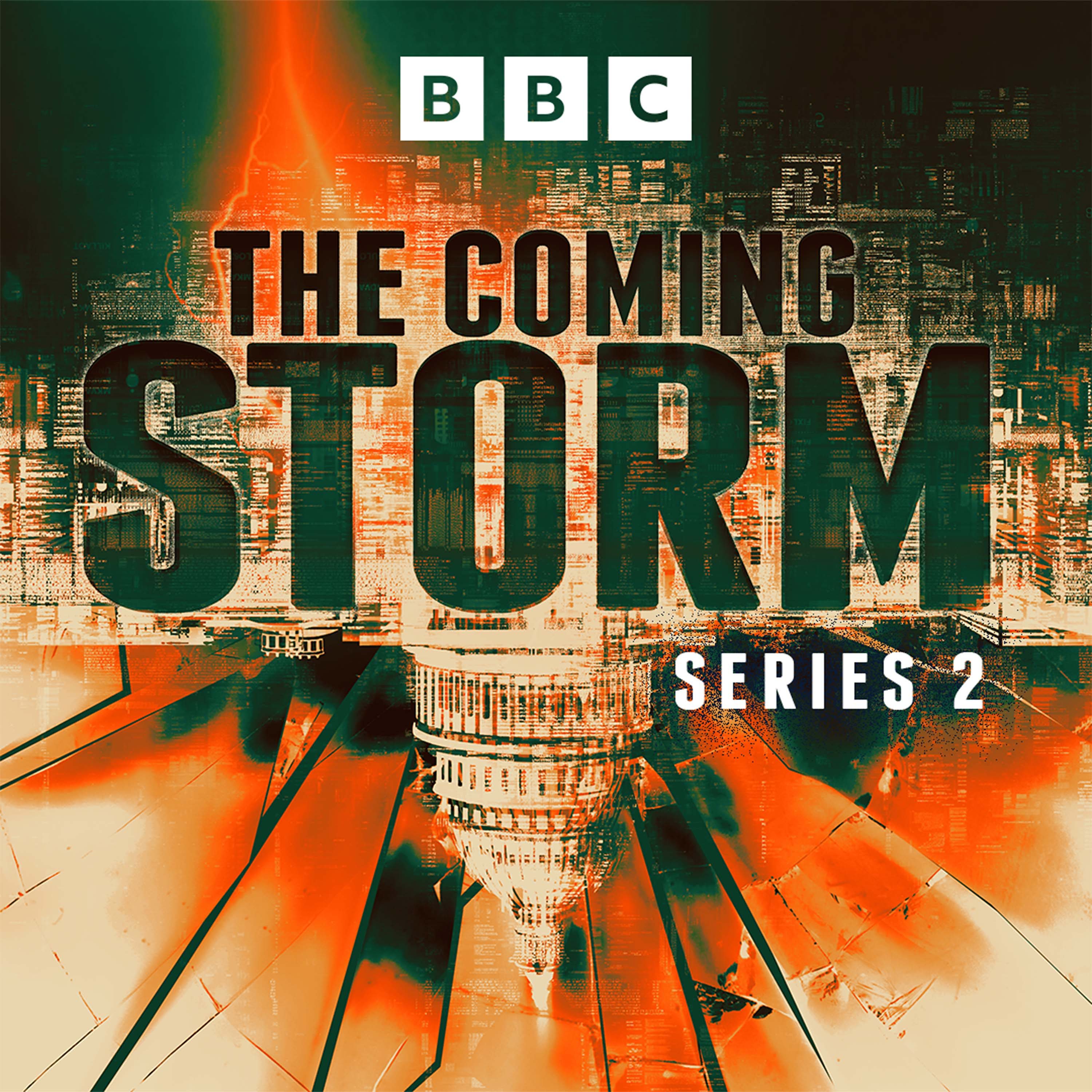
The Coming Storm
BBC Radio 4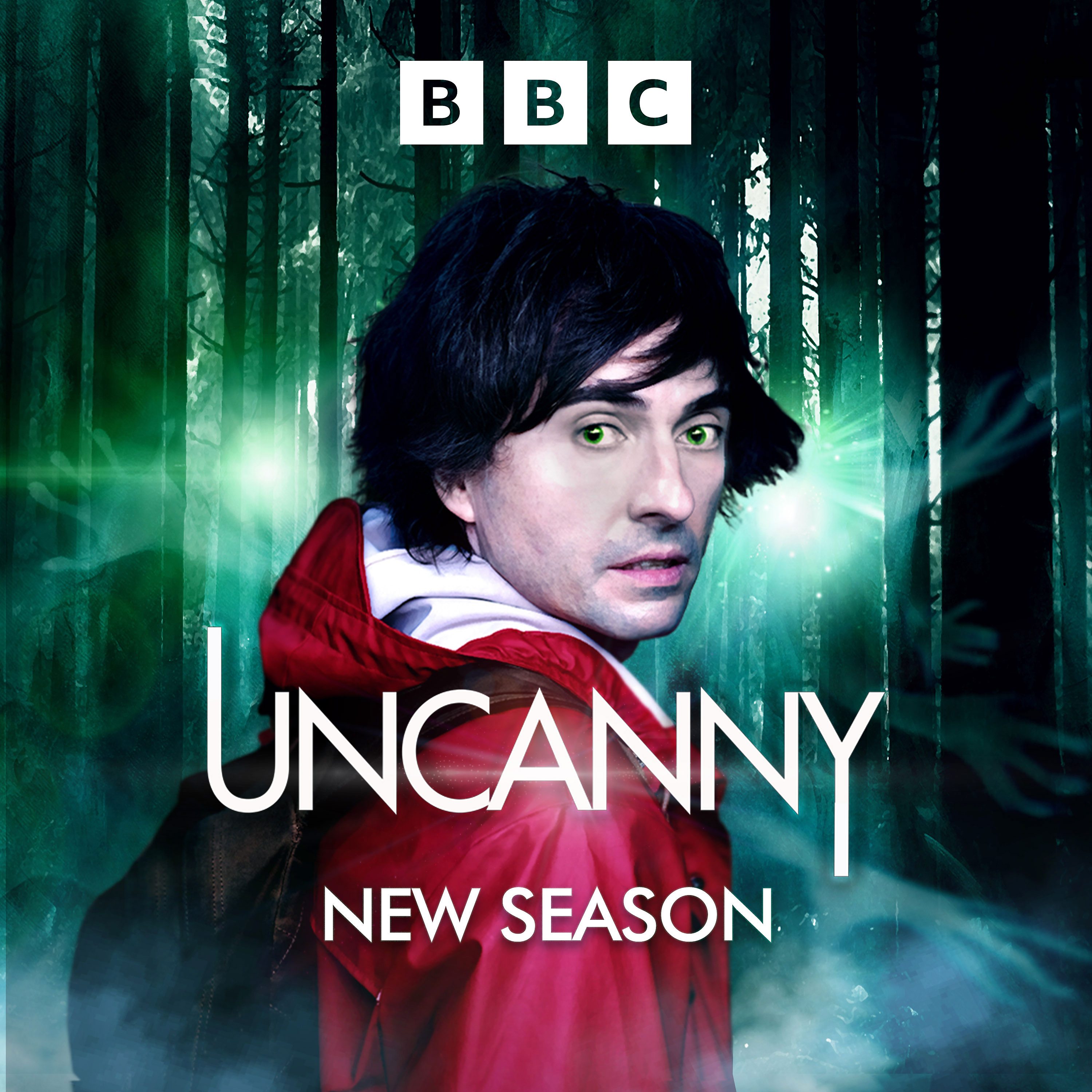
Uncanny
BBC Radio 4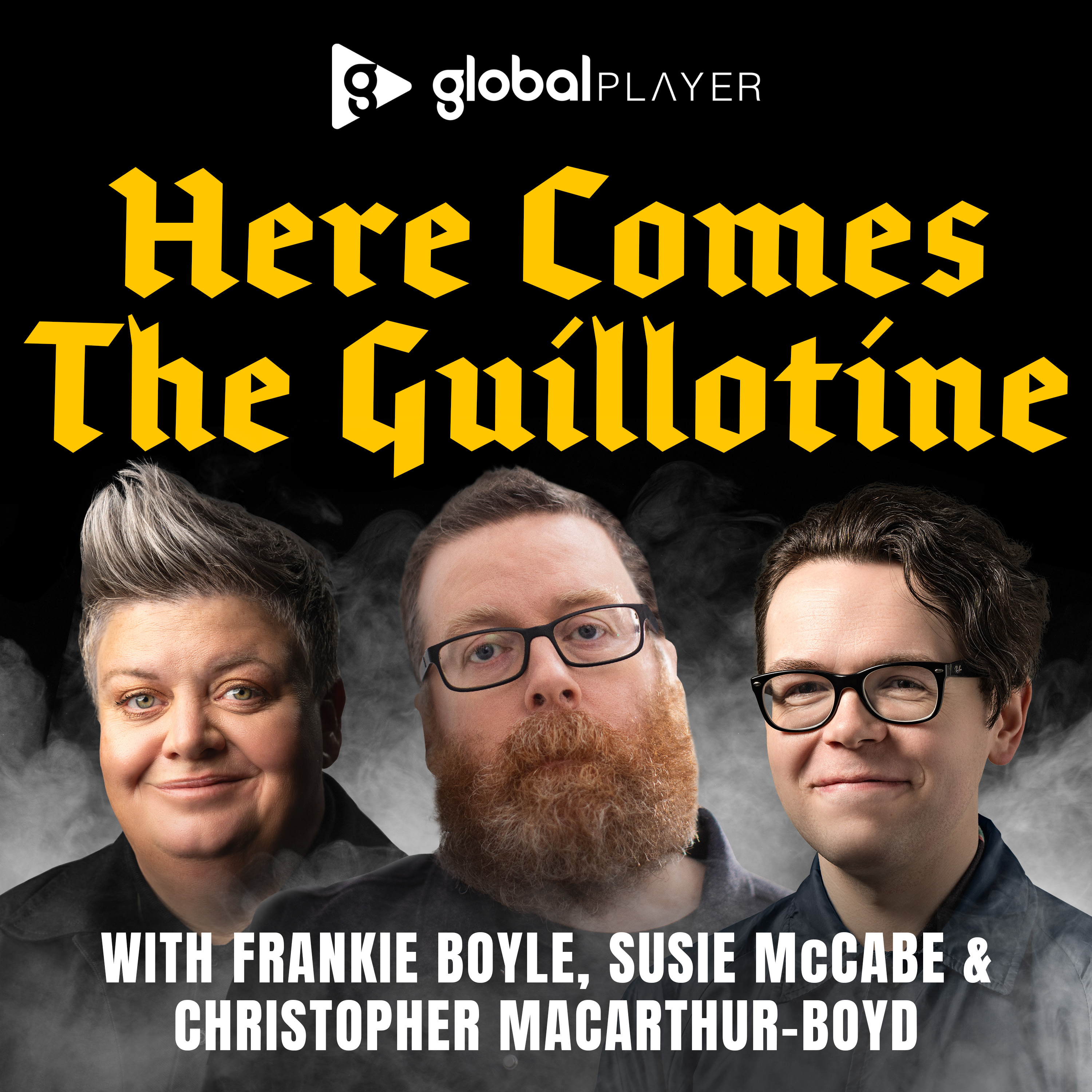
Here Comes The Guillotine
Global
The News Agents
Global
The News Agents - USA
Global
Pod Save the UK
Crooked Media
Daily Politics from the New Statesman
The New Statesman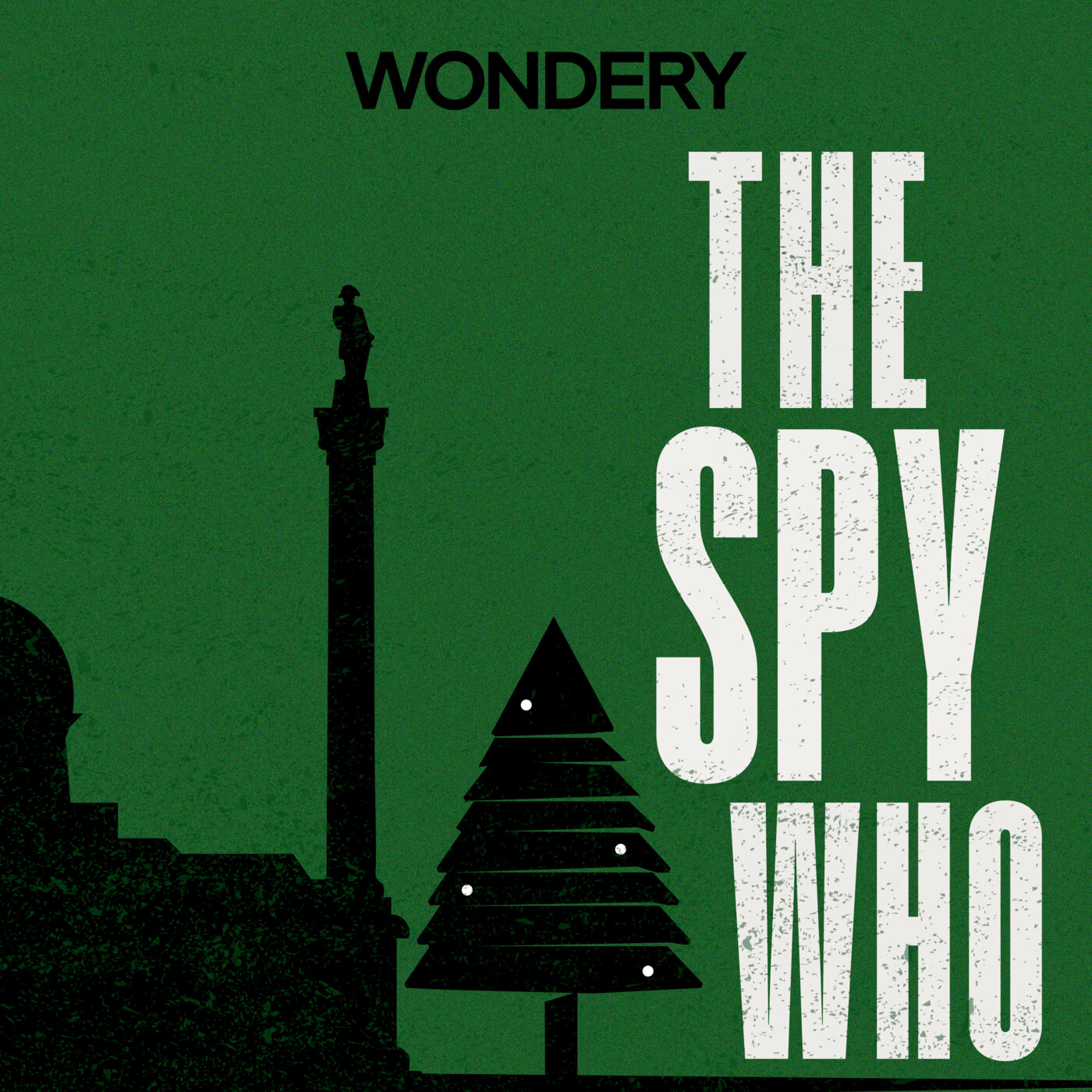
The Spy Who
Wondery